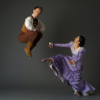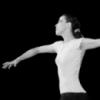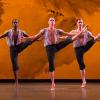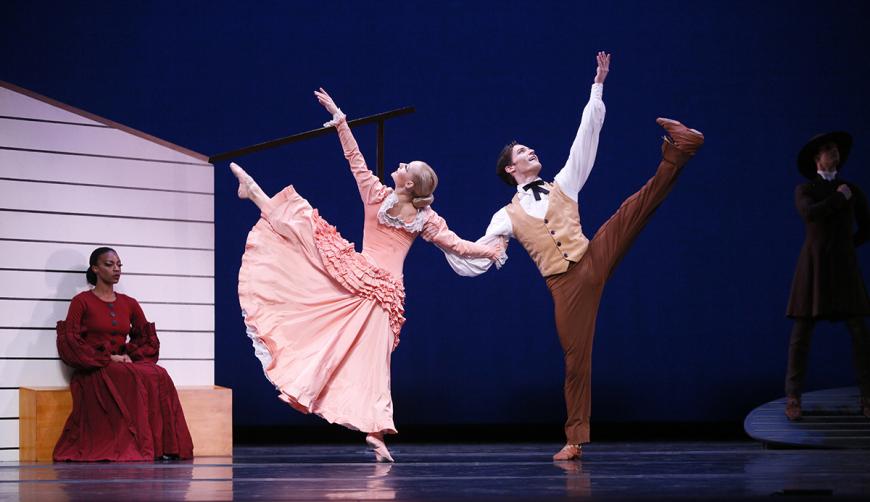
In 1937, the celebrated dancer/choreographer and indisputable mother of modern dance, Martha Graham, premiered her solo Immediate Tragedy. It was a troubling time when the movement innovator was worried about the Spanish Civil War and the rise of fascism in Europe. Fast forward, then, to June, 2020, when COVID had precipitated the lockdown of live indoor performances, and Graham’s solo had been re-imagined as a film by Martha Graham Dance Company’s artistic director and former Graham dancer, Janet Eilber, who began helming the troupe in 2005.
Set to a score that had been composed by Wild Up’s Christopher Rountree, from shards of Henry Cowell’s music notations found in the Graham archives, the digital version had been commissioned by The Soraya and its artistic director, Thor Steingraber. The film was seen on The Soraya and on Graham Company’s YouTube Channel. But in a welcome return to the stage, on November 19, Immediate Tragedy will once again be a solo performed live as part of a mixed bill at The Soraya that also includes Graham’s Appalachian Spring, her Diversion of Angels, and the West Coast premiere of Andrea Miller’s Scavengers.
As the Graham Company has had an ongoing relationship with The Soraya — as well as with the music collective Wild Up — Eilber, in a phone conversation from her home in New York, explained that Steingraber had connected her with Rountree. “Thor put us together in 2016, the second time we came out to The Soraya. Then we invited Chris to go with us to Paris and he conducted the Paris Opera Ballet in 2018. At that same time, he and I began talking about Immediate Tragedy, so it’s been a long wind-up and interrupted by COVID, but the film added another element to “Immediate Tragedy” and it’s something I’m really proud of.”
And while the filmed version of Tragedy featured 14 dancers and six musicians, the solo at The Soraya will be performed by Xin Ying and accompanied only by a pianist. Graham firmly believed that the music should not only frame and enhance the dance, but that the dance should be the main event, with music composed expressly to support the movement.
The addition of live music, having become somewhat of a rarity these days, is always an added bonus to any dance performance. Explained Eilber: “It’s a different animal. It elevates all that we do, sort of in an indescribable way. It’s the spontaneity [where] the musician and the dancers need to be responsive to each other.
“So often we’re required to perform with recorded music,” she added, “and they know what’s coming next. When there’s that live element, there’s another person that experiences it with them and it’s an expansion of what the performance is.”
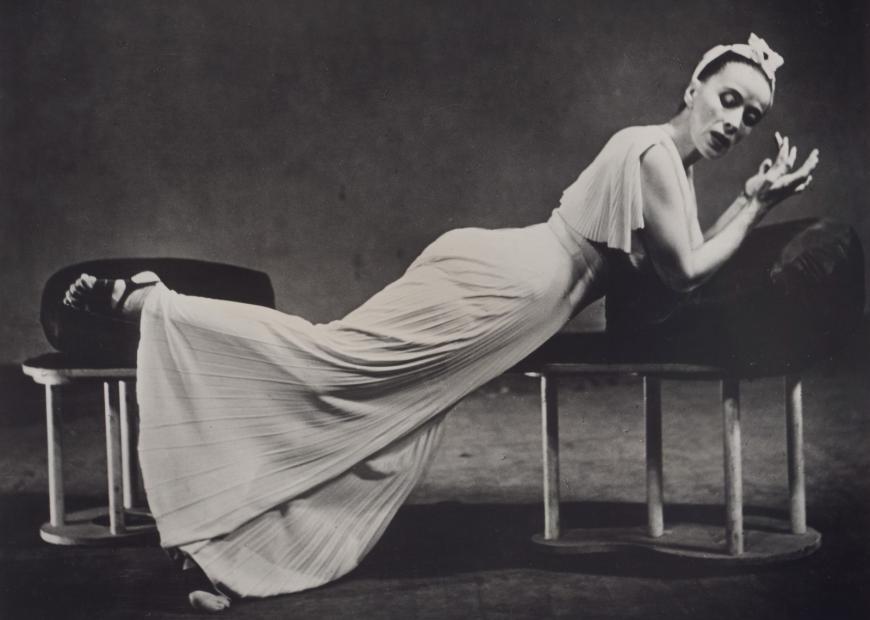
In honor of its 77th anniversary and because it’s a perennial favorite, Graham’s most well-known work, Appalachian Spring, with Aaron Copland’s Pulitzer Prize-winning score, is also on the program. An affirmation of democratic values during World War II, the dance was, Graham wrote in 1987, “the one I cherish the most.” And in her original script for Copland, she spoke of “a legend of American living'” that should “by theatrical clarity, add up to a sense of place.”
Eilber pointed out that Graham and Copland spent a great deal of time considering the American experience. “When you read their letters, the material they wanted to pour into this piece, was so rangy — from [abolitionist] John Brown, [who raided] Harpers Ferry [to] Uncle Tom’s Cabin and every religion — Shakers, Quakers. All of that stuff is distilled in that piece.
“The American conversation,” Eilber continued, “hasn’t changed that much. There’s nationalism, immigration. It’s not a Hallmark card. But it’s got the American spirit in it. No matter how divided the country is, the American spirit runs through us. They’ve just poured that into that work.”
Indeed, Graham, who founded her troupe in 1926 and died in 1991 at age 96, continues to be relevant, her own words about Immediate Tragedy, resonating as strongly today, especially since emerging from the pandemic, as they did in 1937: “I was dedicating myself anew to space, that in spite of violation I was upright and that I was going to stay upright at all costs.”


